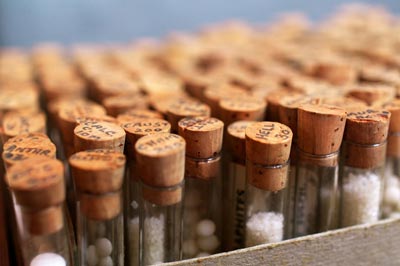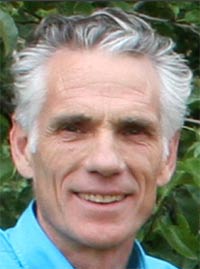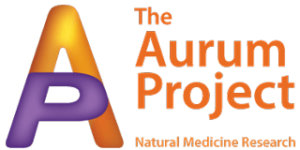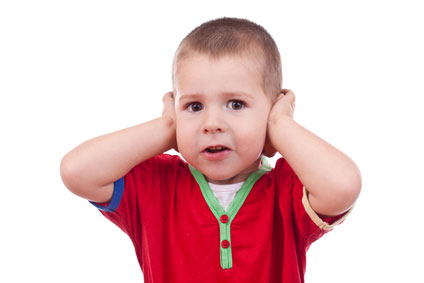Autism Spectrum Disorder treatment using Homeopathy and Isotherapy and the work of Dr Tinus Smits
Dr. Tinus Smits was a homeopathic doctor who wanted to help children with autism. He wanted to help the parents who are exhausted caring for a child.
Autism is on the rise
Autism Spectrum Disorder (ASD) is the fastest growing developmental condition in the western world. In 2015, there were 164,000 Australians with autism, a 42.1% increase from the 115,400 with the condition in 2012. Then by 2018, there were 205,200 Australians with autism, a 25.1% increase from the 164,000 with the condition in 2015.
Therefore, looking at multifactorial reasons for why this has occurred appears to be absolutely essential.
According to the Centres for Disease Control and Prevention (CDC), children with autism might exhibit the following types of emotional and behavioural disorders:
Autism Behaviour Symptoms
- Not point at objects or show interest
- Not look at objects when another person points at them
- Have trouble relating to others or lack interest in other people
- Avoid eye contact and prefer to be alone
- Have trouble understanding other people’s feelings or talking about their own feelings
Social Interaction Issues
- Prefer not to be held or cuddled, or might cuddle only when they want to
- Be unresponsive when people talk to them, but respond to other sounds
- Be very interested in people, but not know how to talk, play with, or relate to them
- Repeat or echo words or phrases said to them, or repeat words or phrases in place of normal language
List Of Communication Problems
- Have trouble using typical words or motions to express their needs
- Not play typical ‘pretend’ games
- Repeat actions over and over again
- Have trouble adapting when routines changes
- Have unusual reactions to the way things smell, taste, look, feel or sound
- Lose skills they once had (for example might stop saying words they previously used)
In Tinus Smits’ book ‘Autism Beyond Despair’, he gives detailed descriptions of Isotherapy, which he used when treating numerous cases of autism. The book was first published in 2010, with a third edition published in 2016.
What is isotherapy and how does it work as an ASD therapy?
One of the types of therapy for autism is Isotherapy. A treatment based upon making up homeopathic preparations from certain substances including medicinal substances, paint etc. Additionally, once the baby is born substances can enter through breast milk or via inhaling (e.g. via fresh paint fumes or new vinyl covering on the floor of the baby’s bedroom). Other concerns are shampoo, soap and creams which contain parabens, ethyl glycol, phthalates and bisphenol A. Some parents have been calling this a detox.
According to Tinus Smits the main issues to consider when assessing ASD are:
- Health of both parents prior to conception, a detailed history of both should be taken along with medication prescribed or taken
- Toxic factors in parents prior to conception, which can be from Lyme disease; mononucleosis; fibromyalgia; inhalers for asthma, medication for arthritis or other infectious diseases. Parents at risk may be taking medication for a chronic disease or have poor food habits with the intake of bad oils, low omega-3 fatty acids, lots of sugar and low vitamin C intake, as well as smoking or alcohol overindulgence
- Use of drugs during pregnancy, and quality of pregnancy
- Delivery (with or without medication), a difficult or premature birth so these children should be seen by an osteopath or cranio-sacral therapist
- Medical history of the child and use of any drugs during the first two years of its life (any side effects)
- Stress factors after birth due to repeated antibiotics; anaesthesia and other medications; toxicity from plastic softeners, aspartame, glutamate, etc.
Researchers Nora Banachour and Gilles-Eric Seralini published a paper with regard to the high dilutions of Roundup pesticide, and came to the conclusion that concentrations 100,000 times lower than that a normal gardener is exposed to still kills cells in newborns. Due to the increase of autistic children, this increase cannot be just linked to genetic disorders. Therefore, the combined factors of toxic exposure to food additives, environmental toxins, drugs or antibiotics used during pregnancy (or for two years afterwards), have been under suspect with regard to the extreme sensitivity of a foetus or new born to chemical overload.

Homeopathy treatment for autism, found useful by Dr. Tinus Smits:
- Cuprum metallicum – calm obsessiveness, inflexibility and tension, including tics and headbanging
- Saccharum officinale – restore emotional contact with parents, siblings and classmates
- Vernix caseosa – better boundaries against external stimuli
- Lac maternum – be more present and grounded in their body
- Anacardium orientale – calm aggressiveness
Saccharum officinale D6 (low potency) given once a day is prescribed to help the digestive system. Chelidonium and Cholesterinum are liver remedies and Berberis is a kidney remedy. When the organs are detoxified and stimulated, this is called drainage therapy, however, Tinus did not recomend combined remedies but gives them individually. Saccharum officinale 30C and Cuprum metallicum 30C is sometimes to be given once per week by parents. Once there is an improvement the remedies may both be given in 200C.
After treatment with homeopathy, nutrition and detoxification, if the child has made progress, then a checklist will be made of what the mother may have taken during her pregnancy, just in case Isotherapy can be considered at this stage.
In one particular case, the mother had taken antibiotics for skin infections, used aspartame in her coffee and a nasal spray xylomethazolin (which she also gave to her child for his colds). Additionally, from birth the child was given milk in a plastic bottle heated in the microwave. After initial treatment with homeopathic remedies, Dr Smits prescribed a homeopathic remedy made from plastic softeners which have been heated in the microwave, produced by the Hahnemann pharmacy in Holland. Next an Isotherapy remedy was made from xylomethazolin and also aspartame, plus finally a remedy from the antibiotics. This case is one of many stories reported in the book Autism, Beyond Despair.
Environmental factors, antibiotics and gut bacteria
David Perlmutter in his book “Brain Maker: The Power of Gut Microbes to Heal and Protect Your Brain for Life“, also believes that environmental factors can influence early brain development. His advice is to treat the child’s gut bacteria, and also links repeated prescriptions of antibiotics to affecting children on the autism spectrum. He will often order a stool analysis to get an understanding of the gut health, and has found that a lack of Lactobacillus is an indication of serious trauma to the microbiome. For this he will prescribe oral probiotics and vitamin D.
ASD children tend to have higher levels of clostridial species in the gut, which crowd out the balancing effects of other gut bacteria, leading to lower levels of beneficial bugs like bifidobacteria. Higher levels of clostridial species may also explain why kids with autism crave carbohydrates – especially refined sugars, the foods that feed these bugs – creating a vicious cycle that fuels the proliferation of more Clostridia. Certain antibiotics, can trigger overgrowth and throw the overall balance of intestinal bacteria out, and this raises the question as to whether some species of Clostridia could be a potential agent in causes of autism?
Many children with autism have been found to have a much higher percentage of the clostridium in their stools. High levels of clostridial species relates to the role that short chain fatty acids play in the gut. The main fatty acids produced by the gut microbes are acetic, propionic and butyric acid. These are either excreted or absorbed by the colon and used as a source of energy by the body’s cells. Butyric acid is the most important fuel for the cells lining the colon, and this fatty acid is their primary energy source and it also has anti-carcinogenic as well as anti-inflammatory properties. Clostridial species produce propionic acid (PPA) in abundance, and if this passes into the bloodstream it can cause damage to the immune system and brain. PPA also affects cell to cell signalling, crippling the way one cell can communicate with the next, and compromises mitochondrial function, altering the brain’s ability to use energy. It also increases oxidative stress, which in turn harms proteins, cell membranes, vital fats, and even DNA, as well as depleting the brain of various molecules such as antioxidants, neurotransmitters, and omega-3 fats that the brain needs to run properly.
Dr Derick F. MacFabe is a prominent researcher in this area of medicine. For more than ten years his autism research group at Western Ontario university, have been investigating how certain gut bacteria like Clostridia may interfere with brain development and function. In one study they fed pregnant rats and their offspring diets high in propionic acid, and by the times the pups were four to seven weeks old their brains showed changes similar to those seen in children with autism. MacFabe’s group now believe that autism may be an acquired disorder involving altered PPA metabolism, which upholds Dr Tinus Smits belief that in some children antibiotics can cause symptoms. Reversal of PPA damage may be assisted by the use of the supplements below.
Nutritional Supplements for autism, which can assist the behavioural symptoms of autism
- Omega-3 fatty acids oil, with EPA and DPA which helps to restore integrity of brain function.
- Vitamin C along with zinc and magnesium. At the start of treatment Dr Smits will give ascorbyl palmitate
- Healthy organic food without sugar and additives, plus Saccharum officinale D6 daily for gut health.
- David Perlmutter believes that Dr. MacFabe’s advice with regard to patients who may have PPA gut damage is: the use of supplements containing important biomolecules such as L-carnitine, an amino acid critical to healthy brain function; omega-3 oils; and nacetyl cysteine (NAC), the latter of which can enhance glutathione production, which is a key antioxidant in the brain that helps control oxidative damage and inflammation.
Thank you to Aurum Project volunteer Sarah Saunders for contributing this article Autism Treatment using Homeopathy and Isotherapy to help behavioural symptoms and communication problems. This blog was first published in 2017 and was last updated 1/5/2024

Dr Tinus Smits, author of ‘Autism Beyond Despair’, was a homeopathic doctor who treated children with autism with a step by step detox of substances thought to be causative factors. The substances are homeopathically prepared, that is diluted and potentized.
Dr Smits studied homeopathy with Jacques Imberechts, Alex Jacques, George Vithoulkas and Alphons Geukens. He finished his medical studies in 1986 and he always believed that the therapeutic possibilities of homeopathy could be improved by careful observation and registration of the results of homeopathic treatments. His life work lay in developing isotherapy to help behavioural symptoms and communication problems in autism. He believed that isotherapy was well supported by dietary and nutritional supplements.

